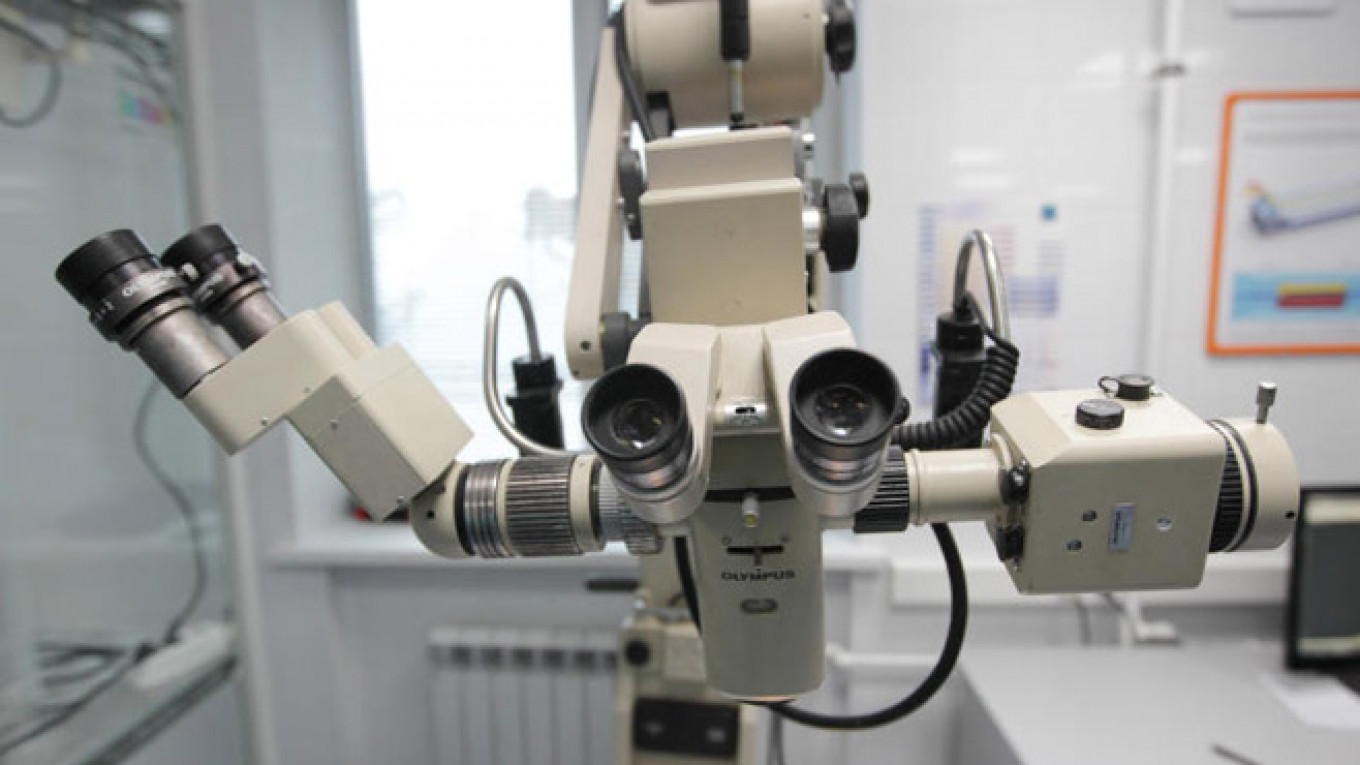After scientists across Russia lost access to thousands of academic journals on Tuesday due to the ruble's sharp devaluation, Education Minister Dmitry Livanov vowed to restore access to academic publishing giant Springer, Russian media reported.
Universities and research institutions across the country lost access to Springer due to a failure to pay for their subscriptions, newspaper Kommersant reported.
The Russian Foundation for Basic Research, a government-controlled organization that oversees scientific research across the country, reportedly owes the company some 890,000 euros ($1 million), having been unable to cover the costs of subscriptions for Russia's many universities and researchers after the ruble lost nearly half its value in 2014.
Matthias Aicher, the head of Springer for Russia and the Commonwealth of Independent States, told Kommersant that the Russian Foundation for Basic Research had received the company's publications for free for the past four months but that this situation could no longer continue.
Founded in 1842, Springer publishes books and academic journals, mainly in the fields of medicine, technology and natural sciences, and hosts many scientific databases. The publishing company boasted 2,400 English-language journals in 2014, and offers 170,000 electronic books. The head of the Russian Academy of Sciences, Vladimir Fortov, was quoted by Kommersant as saying that a lack of access to foreign academic publications could undermine the development of science in the country.
Last year, the subscriptions of Russian scientists to Springer's academic journals amounted to 3.2 million euros ($3.6 million). The Russian Foundation for Basic Research receives applications for Springer subscriptions from educational institutions and researchers throughout the country, which are then allocated funds (in rubles) to cover their costs. The institutions then paid for their subscriptions through the National Electronic Information Consortium, which had been responsible for converting the funds into euros and transferring them to Springer.
The convoluted pay scheme has left it unclear which party will be held responsible for paying Springer the outstanding 890,000 euros in unpaid subscriptions, Kommersant reported.
But after news of the cutoff spread, Livanov pledged that Russian scientists would regain access to their Springer subscriptions, saying that the ministry would cover their costs if the Russian Foundation for Basic Research was unable to do so, the TASS news agency reported.
President Vladimir Putin said in December that the state would not slash funding for science, pledging it would be kept above 834 billion rubles ($16 billion at the current exchange rate). Yet Russian scientists have faced trying conditions at home. In 2013, the Russian government ordered the reform of the Russian Academy of Sciences, an umbrella organization that comprises 500 research institutes. The new reforms place the academy's property and some of its affairs under government control, which has sparked fear among scientists that the institution could lose its independence.
Contact the author at g.tetraultfarber@imedia.ru
A Message from The Moscow Times:
Dear readers,
We are facing unprecedented challenges. Russia's Prosecutor General's Office has designated The Moscow Times as an "undesirable" organization, criminalizing our work and putting our staff at risk of prosecution. This follows our earlier unjust labeling as a "foreign agent."
These actions are direct attempts to silence independent journalism in Russia. The authorities claim our work "discredits the decisions of the Russian leadership." We see things differently: we strive to provide accurate, unbiased reporting on Russia.
We, the journalists of The Moscow Times, refuse to be silenced. But to continue our work, we need your help.
Your support, no matter how small, makes a world of difference. If you can, please support us monthly starting from just $2. It's quick to set up, and every contribution makes a significant impact.
By supporting The Moscow Times, you're defending open, independent journalism in the face of repression. Thank you for standing with us.
Remind me later.






